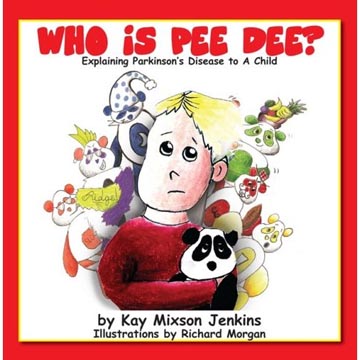Kurt Dieck formerly SVP of Strategy and Business Execution at Cardinal Health, will lead early stage drug discovery business at Biosortia Pharmaceuticals. Dieck was named President and CEO in November 2012 and has quickly identified other key executives, including Dr. Guy Carter, former Natural Product head at Wyeth Pharmaceuticals, as his Chief Science Officer. In conjunction, other collaboration partners have joined the team, including NOAA (National Oceanic and Atmospheric Administration), NCI (National Cancer Institute) and key universities, to strategically accelerate the development of novel drug leads in the therapeutic areas of cancer, infectious diseases, inflammation and neurological disorders. Biosortia Pharmaceuticals has seen promising early results with dozens of novel compounds having already been requested, and are under evaluation with NCI and Eli Lilly.

Dieck has spent nearly 30 years in healthcare, including 18 years at Arthur Andersen as a global equity partner and then 10 years with Cardinal Health, a Fortune 20 public company, as a senior executive; there he worked with a broad spectrum of partners, including brand pharmaceutical manufacturers, throughout the supply chain. Dr. Guy Carter has over 30 years of experience working in pharmaceutical R&D, primarily in the discovery and development of microbial natural products. He previously was the leader of natural products drug discovery at Wyeth Research, as head of the Chemical Technologies Department.
“Kurt and Guy make a great team. Their complementary Pharma experiences and backgrounds create great opportunities to accelerate Biosortia’s objective to become the premier, aquatic natural products company with a primary focus in drug discovery,†says Ross Youngs, Biosortia’s Founder and Chairman. “Kurt and Guy bring a wealth of research and business experience along with deep industry relationships in building successful Pharma partnerships. Everyone involved with this young biotech is excited about the future.â€
Industry observers have commented that late-stage R&D pipelines are not providing Pharma with the desired revenue growth the market is expecting. Therefore, large Pharma is evolving the way it performs R&D in order to optimize efficiency and to boost patent cliff defenses. These changes require shifting from relying solely on in-house chemistry-based R&D to acquiring and licensing external technologies and natural products based compounds in various stages of development. Biosortia’s ability to supply novel, highly active and potent compounds with drug-like characteristics will increase the productivity and success rate for Pharma as well as reduce the overall cost of the discovery process. The cost to discover, develop and launch a new drug is estimated to reach nearly $3B per drug by 2015. Biosortia’s business model is designed specifically to support Pharma’s needs.
“With nearly unlimited microorganisms (3.7 nonillion), the aquatic environment and its consortia represent an extraordinary opportunity…a new frontier, to access extremely potent and chemically diverse secondary metabolites with drug-like properties with unique mechanisms of action never researched before,†said Dieck. In describing the opportunity, Dieck goes on to say, “Biosortia is on the cutting edge of natural product discovery
and has the capabilities to deliver on its aspiration. Our powerful natural products research team, led by Dr. Guy Carter, in partnership with NOAA’s Dr. Peter Moeller, a leader in aquatic natural products research, has the experience and know-how to decipher the complex unexplored environment in a very efficient manner leveraging all the current state of the art instrumentation. The need for more efficient and effective approaches to drug discovery has never been more important. Biosortia’s innovative technologies, deep research skills and key relationships will efficiently provide thousands of unique natural products as candidates for drug discovery at a time when Pharma is in critical need for “high quality shots on goal.â€
“Aquatic microbial consortia are a rich source of metabolically active organisms including microalgae, bacteria, fungi and their secondary metabolites,†states Carter. “Owing to the competitive nature of their habitat, chemical investigations of microbial consortia reveal unique structurally diversified natural products that are responsible for signaling and self-defense that have potential as therapeutics with novel mechanisms of action. Since they have been pre-optimized by nature, these compounds are typically closer to a drug candidate than a synthetic lead, thus requiring less optimization and shorter time when found as ‘hits’ in screening programs.â€
The team has also focused on agreements with strategic collaboration partners as vital components to the strategy. Biosortia has recently entered into several collaboration agreements with NOAA, Analyticon and exclusive harvesting relationships, just to name a few. Several others will be advanced by the end of January. Biosortia’s cooperative research and development agreement (CRADA) with NOAA’s Center for Human Health Risk at Hollings Marine Laboratory provides a 5-year framework for research and development regarding the analysis and purification of novel bioactive compounds. According to NOAA’s Technology Partnerships Office, “Success will result in the commercial development of new and unique chemical compounds from the sea which have benefits to human health, either through disease prevention or new treatments for disease.â€
Dr. Peter Moeller, NOAA’s Research Scientist who leads the Toxins Natural Products Program stated after analyzing fractions of Biosortia’s biomass, “Coupling NOAA’s mission of characterizing toxins affecting environmental and/or human health with Biosortia’s drug discovery focus turns one man’s toxin into another’s chemotherapeutic. The microorganisms analyzed in the Biosortia biomass identified more unique activity than I have seen in my 30 year career. The volumes achieved from a single harvest delivered an equivalent of 30 years of accumulation. This could materially change the landscape for natural products drug discovery research.â€
As of December 31, 2012, Biosortia has identified more than 30 bioactive candidate compounds (hits) from a fresh water eutrophic lake consortium. Therapeutic areas of focus include treatments for cancer, infectious diseases, inflammation and neurological disorders. In addition, more than a dozen of its patent protected compounds are in initial evaluation stage within Eli Lilly’s Open Innovation Drug Discovery Program.
Dieck states, “Looking forward, it is with great optimism. We have a great team built around mutual respect, deep experience, and a desire to succeed and make a difference. We are aligning with the right partners and collaborators to execute our strategy with speed and discipline to provide Pharma with much high quality & diverse compounds vs. “me-too†drugs than they have had in the past 10 years. We are excited about what this company can accomplish, not only for its shareholders but also for the millions of people who have been diagnosed with various forms of chronic diseases who are looking for Pharma to identify better ways to help them extend their lives or live a more productive life. Biosortia can play a big role in identifying compounds that can help Pharma achieve these goals. I am looking forward to the challenge and opportunity to build an industry leading drug discovery company.â€
Via EPR Network
More Healthcare press releases







